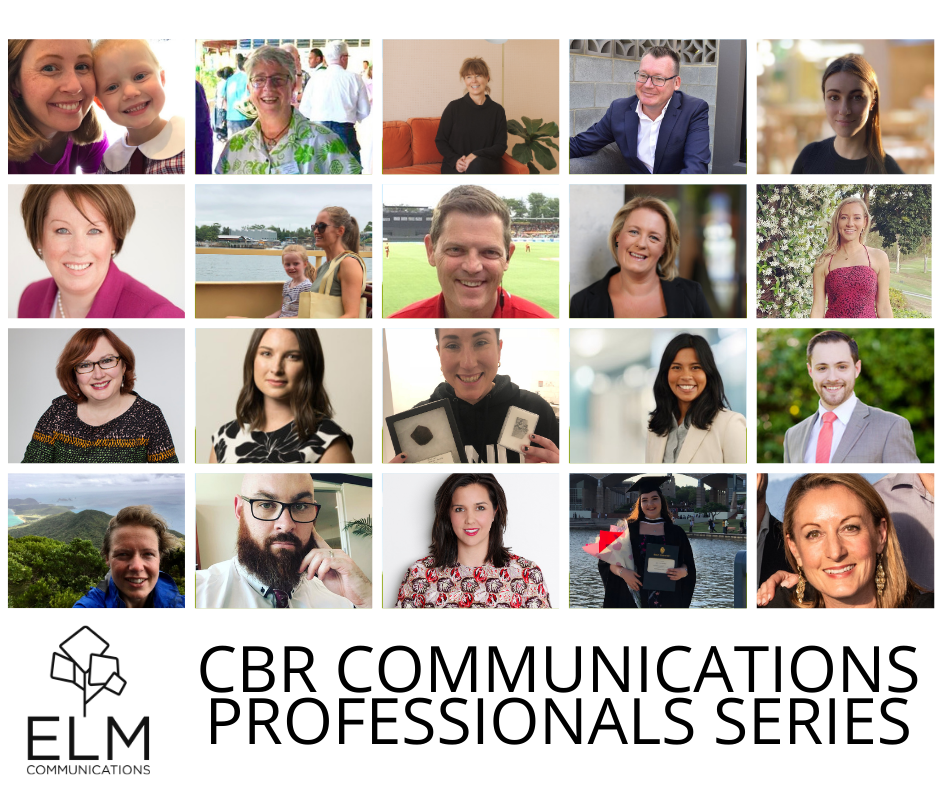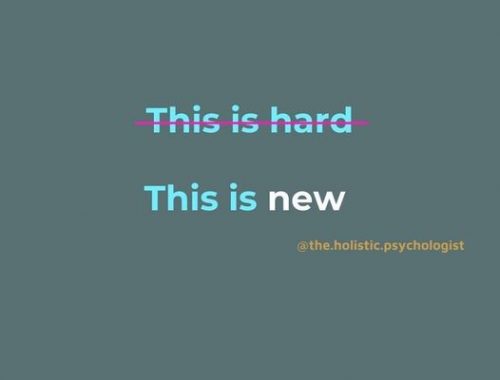CBR Comms Professional Series: wrap up
Throughout 2020, I have been profiling local Canberran communications professionals. Initially, I thought I’ll do it for a few months. I didn’t think anyone would agree to participate. Twelve months on, 22 local professionals have put themselves out there and shared their experience and wisdom about all things communications.

Once a fortnight, I shared profiles from ACT and commonwealth public servants, private sector managers, solo-consultants and small business owners. We heard from new recruits to the profession and those that were sharing their final wisdom as they entered retirement. We heard from lifelong professionals and those that had taken a more winding path to find their passion.
What was consistent across all of the profiles was the dedication to the profession, the passion and the breadth of experience we have in Canberra. In this wrap up article, I wanted to share some of my favourites from the series.
A typical day
The consensus is that there is no typical day in communications, it is always busy, and it always starts early.
“No two days are the same. No two hours are the same. One minute I’ll be in a meeting with a crossbench senator discussing effects of e-cigarettes with heart disease experts, the next I’ll be playing the role of ‘probing journalist’ in interview preparations with the Vice-Chancellor. My role itself is varied.” Jo White.
Our “typical day” changed rapidly in March when we started working from home.
“Right now, my days are very much about being responsive to the organisation’s needs in relation to COVID-19. I make the tedious commute from the kitchen to my home study and settle in for a day of engaging with the world entirely via Skype.” Lisa Ranson
Career highlights
Many found this question the hardest, either to narrow it down or to promote themselves. What was clear was that everyone has done some amazing things, it was hard to pick out just a few.
- “Press Chief Alpine Skiing at the 2010 Vancouver Winter Olympics. As part of that, I managed a team of 40 paid and volunteer staff to service 400 media perched in a two-storey tent on the side of a ski hill. We had to moderate unpredictable and excited medal winners at a dozen post-race press conferences.” Simon Langford.
- “I was ona fly-in/fly-out arrangement with ANZ in Papua New Guinea for 12 months. It was incredible to lead the communications team there to build capability. Some of the issues I faced there were incredible and have definitely set me up well for crisis communications for the rest of my career!” Erin Chancellor
- “Leading the development of the multi-media content showcasing Vivid Sydney to the world. Long and tiring hours but seeing the high-quality videos and photos of the festival created by our talented staff and production crews beamed across the world was incredibly satisfying.” Michelle Rowe.
Our challenges
The challenges we faced were so varied, from the very personal to the ongoing challenge of being valued and engaged as a communications professional.
- “Honestly, having children! Having children has limited the promotional opportunities I have had and the type of work I have been able to do. I’ve effectively been told that I need to be in the office full time to work on campaigns or to get to that next level.” Sally-Anne Clarke about finding the right working culture in the ACT Government.
- “I think the perennial challenge of communicators has been my personal challenge as well: getting buy-in from your stakeholders and developing their trust. After demonstrating that you can be trusted to turn out quality material from their content, you can usually win them around.” Ben Roberts
- “The challenge, not just for me but for the whole sector is the ongoing debate that we have with our bosses that we in fact experts in our fields and in fact communications as a discipline is an expert profession.” Chris Wagner
Professional changes in the next decade
I asked everyone to predict what our profession will face in the next decade and as the year progressed and life got more unpredictable, there was a lot more retrospection on what this might mean for us.
Communications profession
- As communicators, we’ll have to better guide our own organisations to act with integrity and transparency and be inclusive of and responsive to the public. Otherwise, our messages will continue to fall short or be ignored.
- “Everybody is so busy, and resources are tight. I see the challenge for communications being to educate the people we work with on the value of innovative communication, not just flashy in your face communication, but thoughtful, innovative communication that meets set objectives.” Thea McGrath
- Recent changes in the way organisations engage with the community, and the rise of corporate responsibility supports this view. As we are living in an increasingly complex world, the need for communication will also increase. I think over the next decade, there will be a demand for more engaging, transparent, and connected communications.
- A common theme among many of my friends and colleagues in communications is how challenging it is to articulate our value proposition. The deep strategy, business acuity, stakeholder management skills and ability to frame a consistent narrative that will create a positive legacy is often overlooked in the mistaken view that getting more clicks on a page or a pretty marketing campaign up and running is all that’s needed to build customer loyalty. I hope that changes, but it may take a bit of time.
- The way we communicate with our audience will be ever changing. Aside from this and following the world of COVID, I think communications professionals simply need to be prepared for any change (no matter what this is) and be ready to learn and adapt.
Technology
- The changing way we use technology and like to receive information will change the way we work in the communications and media space. Furthermore, I think the importance of storytelling to get your message across will change.
- The trend towards big data is going to drive more and more communications. Having a strong evidence base for your comms is absolutely vital, but that evidence should never become the comms. It supports the message – it isn’t the message itself.
- There is any number of ways to embrace the challenges we face — digital capability and solutions, a smorgasbord of information and channels, user-focussed practices, clarifying purpose and the values and principles from which we work, acknowledging the broader systems we’re in and working with neuro and social science disciplines to better measure and effect change.
- The use of video in digital comms continue to increase.
- I think that technology will continue to drive change in both the consumption of information as well as the distribution. Let’s not let technology, interfere with doing a good job.
- Digital technology will become even more invisible, meaning it’s easier for people to engage with organisations.
- “I’m looking forward to VR and AR becoming more mainstream. It’s going to create so many interactive experiences. Imagine being able to send a media release that offers a 360-report of a scenario, or a social media post where a consumer can test out a product through a screen? There are so many possibilities that will broaden the scope of communications even further.” Chloe Alexander
- I think many of the changes we thought would occur ‘later’ have been fast-tracked due to COVID – particularly in the technology space
- With the COVID-19 pandemic pushing forward the use of digital technologies to influence how we’re interacting with each other, both professionally and socially, I think we’ll see communications integrated more cohesively into other business functions.
Storytelling
- Achieving cut-through in the noisiest environment we’ve ever faced. It’s only going to get noisier as the fragmentation of communication channels grows and how to invest time, money and effort in the right channels.
- I am hopeful there is a resurgence in good story telling and connecting through the written word! I think businesses will recognise the need to have strong communicators working for them.
Media
- I do think we’ll see a shift in the type of influence traditional media has on our lives, from moderately overt to almost completely covert.
- The changing media landscape. We’ve all felt the syndication squeeze, but big challenges of dwindling media outlets are still to come. Announcements like NewsCorp’s recent regional newspaper cuts show communicators that if there’s information and stories that we know must be told to the public, we can’t always rely on others to do it for us.
Inspiration
Our professionals are inspired by a broad range of people:
- New Zealand Prime Minister Jacinda Ardern – three votes!
- My family inspire me each day – my husband, mum and dad, my kids
- My boss or previous boss.
- The Roman statesman and orator, Marcus Tullius Cicero.
- Strong women in prominent leadership roles – Virginia Haussesgger, Julia Gillard, Julie Bishop, and Harriet Elvin.
“In the work context, my inspiration doesn’t come from specific people. It comes from daily practices I admire, the ways people bring their humanity to work and evidence or ideas.” Eleanor Ashton
What was encouraging for me was that many were inspired by other communications professionals:
- Communications professionals! We’re at the frontline, connecting people with ideas and information.
- Really bold and gutsy communicators.
- Talented, passionate comms people who work hard at what they love.
- Anyone who takes the opportunity to step out of their comfort zone and pursue their passion.
“Working alongside and gaining experience from talented colleagues has inspired me the most in my career. It gives me motivation to push myself and get out of my comfort zone.” Paige Pettit
Summer reading and listening list
If you need to add to your summer reading list, or are looking for a new podcast here is what our CBR professionals recommended:
“I find this question quite difficult! I don’t have a single favourite book (or band!). I enjoy something that I can get lost in; something that has a good story.” Reece Cummings
Books
- Brene Brown’s Dare to Lead.
- The ‘Famous Five’ series by Enid Blyton.
- Death, Sex and Money and Revisionist History by Malcolm Gladwell.
- Public Relations, Activism, and Social Change: Speaking Up by Kristin Demetrious.
- Helen Garner’s Joe Cinque’s Consolation.
- Secret River by Kate Grenville.
- Anything by Val McDermid.
- Julia Gillard and Ngozi Okonjo-Iweala’s book: ‘Women and Leadership: Real Lives, Real Lessons’
- Content Design by Sarah Richards
- Big Magic by Elizabeth Gilbert
- Into Thin Air
Podcasts
- Mike Rowe’s storytelling podcast, The Way I Heard It.
- Mike Duncan’s ‘The History of Rome’ series
- Pivot
- WorkLife
- Masters of Scale
- Three Big Points
- Party Room with Fran Kelly and Patricia Karvelas
- How to Money
- Ologies, Alie Ward
- Off Track with Ann Jones
- Chat 10 Looks 3 – Anabel Crabb and Leigh Sales
- Hedley Thomas’s podcasts.
- Stuff You Should Know
Television
- Australian series, The Gloaming
Influential people
If you had to think about who had been most influential in your career would it be someone in your family or a work colleague? They were the two most common groups for our professionals.
“Those who have inspired me the most and influenced me are those managers and leaders who I’ve worked with who have been generous of spirit and shared their knowledge and insights into the profession so that I could continue to learn and grow. Those who I am most indebted to are those individuals I worked with who were helpful as well as respectful.” Lisa Borthwick.
“I believe in influencing your own career by having confidence in your ability to problem-solve and do good work for people, even if you don’t feel immensely qualified at the outset.” Astrid O’Neill
Tips for other communications professionals
This was the question I loved the most – the tips from other communications professionals. Every time I read one it made me stop and think, am I doing that? Or what a great idea! For that reason, I have included all of them!
- If you’ve made a significant mistake, get out in front of it immediately. Be proactive, admit to, own and try to correct it. – Simon Langford
- Make relationships with those around you. Mutually beneficial relationship and the connections you make can be of long-term benefit both personally and professionally. – Sally-Anne Clarke
- Look up. I make it my business to speak with other communication colleagues across different industries, private or government to understand what they’re doing that’s new. – Erin Chancellor
- For the love of God, stop using PowerPoint! – Ben Roberts
- “Stay curious. Explore the world and ideas. Get outside your head. Make links between what you see happening in the world, societal shifts, emerging trends and technologies with the “what, why and how” you communicate.” – Victoria Taylor
- Always work for an organisation whose purpose you believe in. We work very hard in communications (contrary to popular belief) and the long hours and frustration are hard to come at if you don’t believe in the cause. – Jo White
- “Don’t underestimate the power of effective communications. Communications is often at the crux of a business having no idea what it is doing to finding direction.” – Samantha Lloyd
- My tip would be to embrace the ways of the polymath. Continue to be good at many things, and your communication options will always be open. – Michelle Rowe
- “Listen to your audience. Find out what interests them and tailor your message accordingly.” – Monica Lindemann
- Know your subject thoroughly. Don’t fudge, guess or extrapolate. Thorough knowledge and understanding will stand you in good stead no matter the circumstances or who you are dealing with. – Lisa Borthwick
- “Never underestimate the power of being able to communicate well and how those skills can be applied in many areas of business. Communication is your superpower – go forth and conquer!” – Emily Curlewis
- Connect with your industry peers. – Astrid O’Neill
- Keep it short. With the rising of social media, we’re more used to getting information in bite size pieces. – Chloe Alexander
- “I would say my career mantra has been ‘follow the interesting work, not the career trajectory’. I have always been far more interested in roles that have meaning to me and learning opportunities, than climbing the next rung in the career ladder.” – Alison Senti
- To develop your skills to more broadly include business strategy and to always expand your scope to consider more than you might be expected to understand. – Reece Cummings
- Utilise the diverse team you work in. This can include learning and gaining experience from senior colleagues or pulling together team members to bring their unique skills and ideas to the table to produce the best outcomes. – Paige Pettit
- Never forget the important role you have in being that connection point. Always bring your message back to what is going to matter to people the most. – Kate Bradstreet
Thanks to everyone that participated throughout the year!

